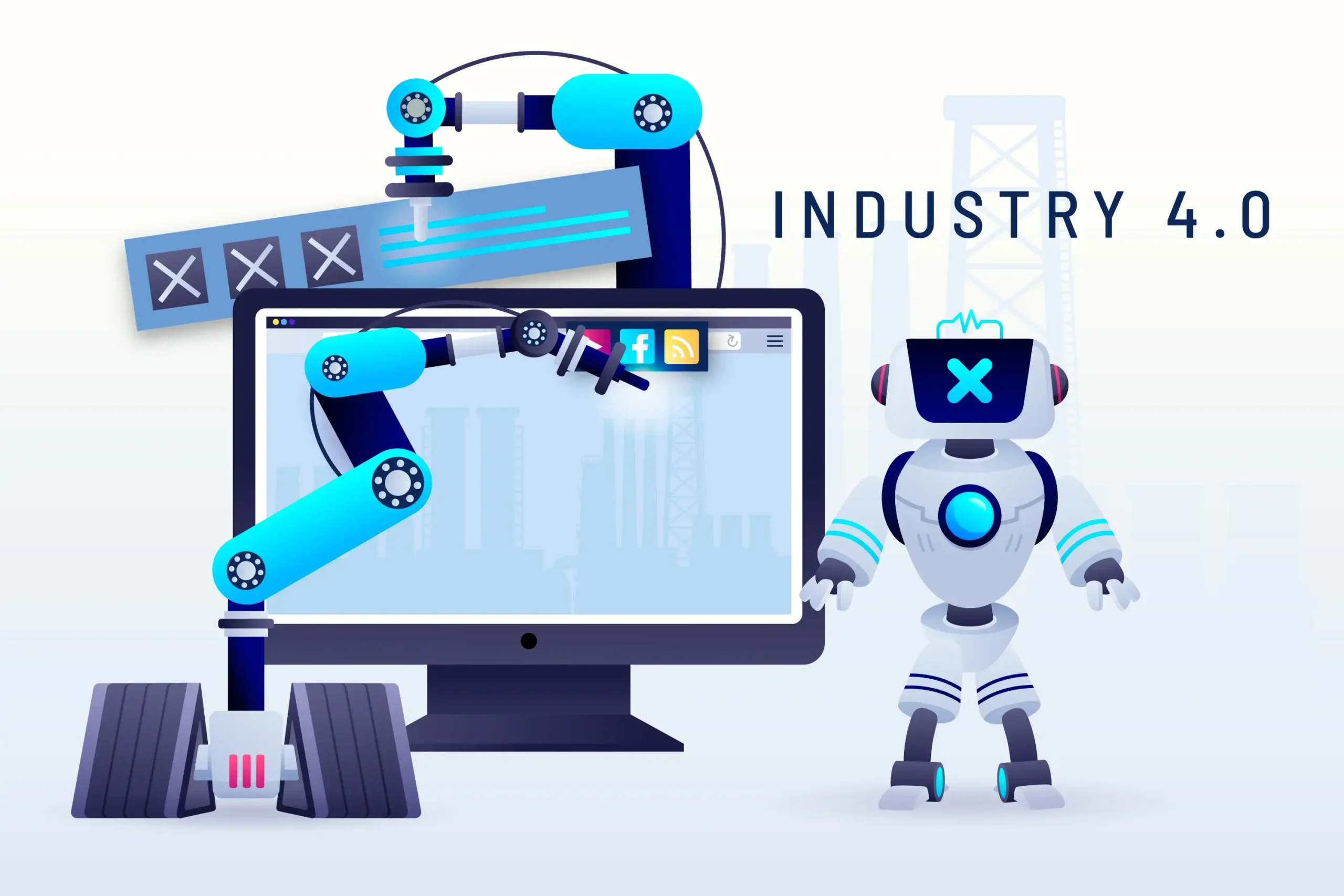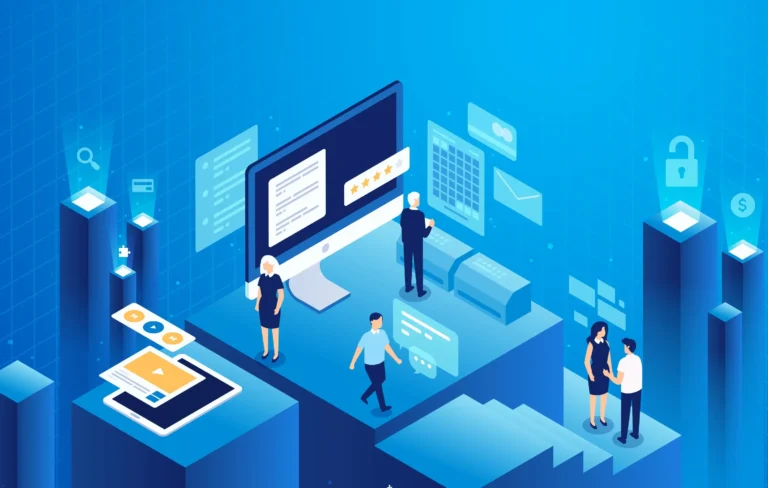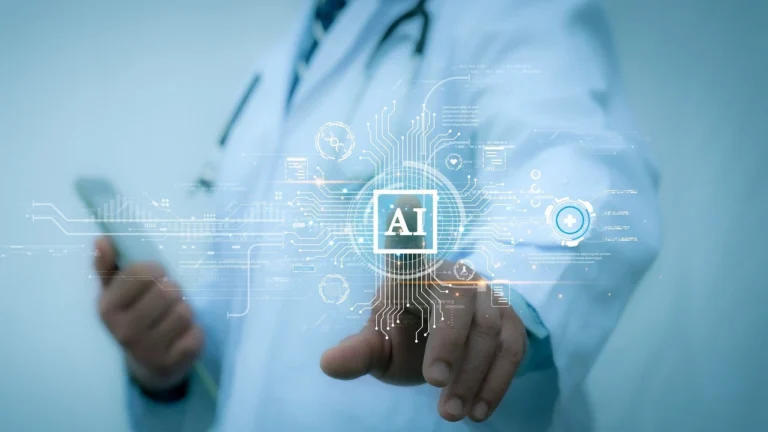When ChatGPT was launched in 2022, it quickly took the world of technology by storm. In a few months, companies started investing billions into AI setups. AI tools like chatbots, voice assistants, and data analysis software helped businesses make complex tasks easier. Many industries, especially IT, have started using AI to fix technical issues, improve customer experience and make better decisions.
However, among the many industrial transformations, job security became a concern for working professionals. Since then, we have heard the question, “How will AI affect the industry?” In this blog, we will discuss the role of AI in global industries, how AI is reshaping the global economy and which industries are being affected the most by AI.
What is AI, and how is it changing the world?
It is important to understand how will AI affect the industry. But before we discuss that, let us understand what AI is. Artificial intelligence is a modern technology that helps computers and machines to do tasks that are mostly done by human intelligence. This includes learning, solving problems, looking at patterns and making future predictions. Algorithms and AI applications like machine learning, deep learning, computer vision and natural language processing make all this possible.
Nowadays, AI is everywhere, making life easier in many ways. For example, AI is used in healthcare to predict diseases and give proper diagnoses to save patient lives. Similarly, business and marketing professionals use AI to create advertisements and sell messages according to customer requirements by studying the target audience. Apart from this, AI is reshaping the global economy as it is used for things like weather forecasting, understanding market and stock trends, and managing large amounts of software data. This is how AI is changing the world.
AI and its impact on job security
As we understand how AI has affected industries, we also need to see how it impacts jobs. There is no doubt that AI has created new opportunities for everyone, but it has also made individuals vulnerable to the threat that their roles might be replaced with AI technology.
A report by McKinsey in 2017 predicts that AI and automation could take away 400 million to 800 million jobs worldwide by 2030. For the UK, this means that sectors like healthcare, education, transport, supply chain and admin will be at great risk. Moreover, we have seen that because of COVID-19, businesses used AI tools and machines to ensure that everything was moving smoothly as humans were working remotely. This shows how quickly automation has affected the jobs of so many people. In 2022, McKinsey released another report that showed how AI caused 8.6 million job changes in the UK from 2019 to 2022. This is 50% more than the last three years. Jobs that can be easily done by machines, such as customer sales representative, admin work and data entry, are at a bigger risk than other jobs.
Furthermore, by 2030, McKinsey predicts that 30% of jobs in the UK will be automated, and industry workers might easily lose their jobs. Even though these are just predictions, however, the use of AI in every industry shows that it is a concern that should be taken seriously.
Which industries are benefiting most from AI?
AI is changing how industries operate as it does simple tasks that can be done automatically without requiring humans to do them manually. However, some industries are benefiting more from AI than others, especially those that work with large amounts of data and repetitive tasks. Here are some industries that are working efficiently with the help of AI:
- Healthcare
AI is helping both patients and doctors as it provides accurate diagnoses for diseases better than medical professionals. It quickly studies a patient’s medical history and genetic information to make the best treatment plans for them. Moreover, it uses AI software to analyse images and detect diseases like cancer and tumours. It is also used for drug development, handling patient data and scheduling appointments, which is why healthcare is benefiting the most from AI tools and machines.
- Finance
In finance, AI is used to make the right decisions for investment and loan plans as it can study large sets of data quickly and give accurate predictions about financial risks. It is also used to study market trends in the financial sector. Moreover, it also protects the system from fraudulent activities by encrypting data and adding other security features.
- Transportation
The transport industry is also enjoying the benefits of AI as it has never been this easy to move goods and people with less fuel cost and accidents. Self-driving cars and drones are famous globally as they can be used to deliver products for long distances without any stops or breaks. Moreover, the supply chain and logistics industry also uses AI to figure out routes for better and quicker deliveries.
What sectors are least affected by artificial intelligence?
Although AI is used by almost every company and industry, there are some sectors that are least affected by artificial intelligence. Here are the following:
Craftwork
Professions like plumbing, carpentry and electrical work can only be done by humans who use their physical and creative skills to understand problems and fix them. Such industries use less AI for their tasks.
Creative Arts & design
Arts, design, and entertainment rely on human expression, culture and creativity. Fields like theatre, music, singing, fashion designing and painting can only be brought to their true form by humans, and no AI technology can replace it.
Law & criminology
Lawyers and judges use human intelligence, ethics and moral understanding to make decisions about different crimes that exist in society. Although AI can help with legal research and creating contracts, it can not make correct judgments like humans, as it cannot understand complex legal matters.
Social work
Social work is a personal field where social workers interact with the poor and vulnerable groups of society to nurture and help them. Although AI can be used to diagnose diseases, it can not replace humans in social work as it requires deep understanding, empathy and emotions. Moreover, AI cannot build trust within people as a social worker can.
Personal services
Like craftwork, personal services like hairstylist, makeup artist, gym trainer and therapist are jobs that can only be done by humans who have a deep understanding of their field. For now, you won’t see a robot replacing your personal trainer or hairstylist.
What is AI’s impact on industries and businesses? Take a look at the statistics.
The importance of AI in business growth is increasing as companies use it to save time, reduce costs and improve their services. To understand AI’s role in global industries and how will AI affect the industry, let’s take a look at these statistics:
| Statistics |
|---|
| 77% of companies are using or exploring AI. |
| 83% of companies are saying that AI is important for business. |
| AI can increase labour productivity by 1.5% in the next 10 years. |
| If AI is added with automation, then business growth can increase to 25%. |
| 56% of businesses use AI to improve their operations. |
| 46% of businesses use AI for customer management. |
| 40% of businesses use AI to track stock levels and manage inventory data. |
| 47% of businesses use AI as digital personal assistants. |
| 51% of industries use AI for cybersecurity. |
Want AI solutions for your company?
From chatbots to automation & predictive analytics, we help businesses get the most out of AI.
Boost efficiency. Reduce costs.
Book a ConsultationHow Are Global Companies Using AI?
Even though job concerns because of automation and AI are increasing, companies are still using AI technology to improve efficiency and save time. The majority of the time, different industries and companies use AI for customer service. According to Forbes, 56% of the companies use AI for customer services. Here are statistics that tell us how global companies use AI:
| Customer Service | 56% |
| Cybersecurity | 51% |
| Digital Assistants | 47% |
| Customer Relationship Management | 46% |
| Inventory Management | 40% |
| Content Creation | 35% |
| Product recommendations | 33% |
| Accounting | 30% |
| Recruitment | 26% |
Which industries are being affected by AI the most?
The statistics above explain how much AI is affecting business operations and industries. It improves services by creating efficiency and opportunities for people. Let us understand which industries are being affected by AI the most:
Healthcare & technology
AI is revolutionising healthcare and technology for the better as doctors can properly diagnose diseases and medical conditions by using AI software machines that can detect health problems accurately. Medical images like X-rays and CT scans are analysed to detect tumours or nodes that can save a patient’s life before their condition worsens. Moreover, it quickly studies data, such as medical records, clinical notes, and patient prescriptions to check for similar symptoms so that doctors can make decisions quickly. This helps in diagnosing health conditions without much cost.
Apart from this, it can also schedule appointments, and improve patient experience so that doctors can do their jobs. Nowadays, even robots are being used for surgeries that offer less pain and quicker recovery than normal surgery. Hence, jobs like radiologists and pathologists may use AI, which can be a risk to these jobs.
Manufacturing industry
The impact of AI on manufacturing industries is increasing day by day. AI robots and machines are the most used technology in the manufacturing industry, and thousands of factories use them to perform repetitive tasks like packaging, production and distribution.
Additionally, AI keeps an eye on the production process and can predict if the machinery has any technical issues at any moment. Hence, it fixes the problem on the spot, making the manufacturing process simple and easy. Some jobs are being replaced; however, people still need to run these advanced machines.
AI in retail and E-commerce
AI is the most used technology in retail and e-commerce as it provides a great shopping experience for customers. Retailers can use AI to understand customer needs and preferences and provide customised suggestions so that there is an increase in sales. Moreover, AI can study data to examine customer online behaviour and create marketing strategies to improve business growth.
However, AI may soon replace jobs like customer support representatives and create new jobs like data analysis and AI systems management.
Mining
AI is used in the mining industry to enhance operations and improve productivity. AI machines and technology speed up data 18 times faster, which means that decisions can be made more quickly than before. Moreover, human lives are at less risk as AI can reduce risk, improve safety, and improve the environmental conservation efforts of the mining industry.
In addition, AI can detect any technical issues with the machines and fix them, which is less costly and also saves time.
Banking Sector
AI is improving the banking sector as AI systems can detect any cyber activity and shut down the problem right away. In addition, AI technology easily does receptive tasks like creating financial reports and adding information. Algorithms like natural language processing and machine learning are also being used in online chatbots that collect customer information and provide better customer service.
According to IDC, the banking sector will be one of the top industries to add AI technology by 2024. However, too much AI use in the banking sector will lead to job loss for many people but also bring opportunities for people who know how to operate AI technology.
Examples of industries leading in AI adoption
Here are a few examples of companies that are leading in AI adoption:
| No: | Name | Industry |
|---|---|---|
| 1 | Technology | |
| 2 | Amazon | E-commerce |
| 3 | Microsoft | Technology |
| 4 | Tesla | Automotive & Energy |
| 5 | Apple | Technology & Electronics |
| 6 | IBM | Technology & Consulting |
| 7 | Meta | Social Media & Technology |
| 8 | NVIDIA | Technology |
| 9 | OpenAI | AI Research |
| 10 | Baidu | Internet Services |
Challenges of AI implementation in business
While AI has a lot of potential for helping businesses grow, it also has challenges that need to be kept in mind. Here are the challenges of artificial intelligence in business operations:
- AI technology is very expensive as different businesses have to install AI software and tools according to their needs. This is costly, and small businesses can struggle with AI implementation.
- Most of the AI machines and software need to be given instructions and data so that they can work. AI uses algorithms like machine learning and natural data processing to understand human language. For this, you need skilled engineers and data scientists who can work with AI.
- AI works with large amounts of data. If businesses do not handle the data properly and ethically, then security and privacy concerns can occur that can damage a company’s reputation.
- Employees can be afraid that AI will replace them, and they will eventually lose their jobs. Some workers may not trust new technology, especially those who do not know how to use it.
- AI makes decisions based on the data that is given to it. If it is not properly designed, then it can make inaccurate or biased decisions, which is a great ethical concern.
- AI systems and software need regular updates and changes. Hence, businesses have to allocate a separate budget for this purpose which is costly and time-consuming.
Read More: Software-defined network & AI for cybersecurity


